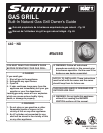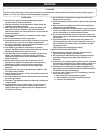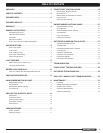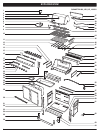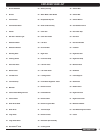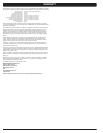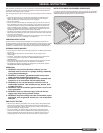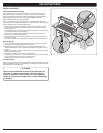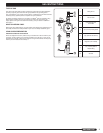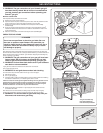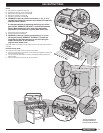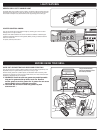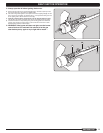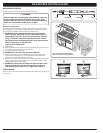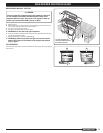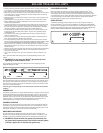Special offers from our partners!

Find Replacement BBQ Parts for 20,308 Models. Repair your BBQ today.

Buy Weber Grill Parts. It couldn't be easier. Find your Weber parts here.
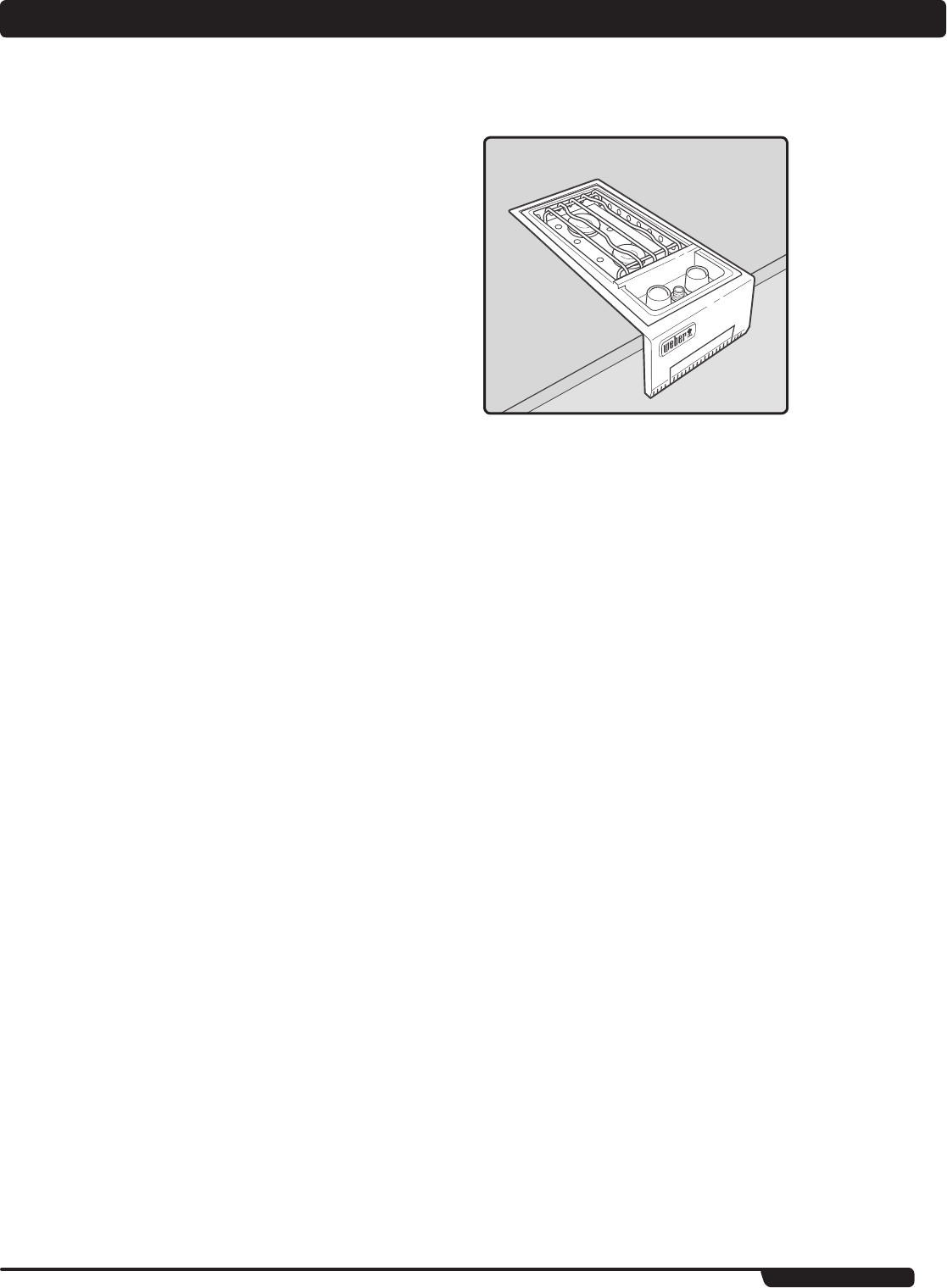
WWW.WEbER.com
®
7
GENERAL INSTRUcTIoNS
NOTE: IF YOU HAVE PURCHASED A SIDEBURNER
If you have purchased a Side Burner accessory with your Summit
®
gas grill, Weber
®
recommends that you read the SUMMIT
®
BUILT-IN SIDEBURNER INSTALLATION/
OWNER’S GUIDE before designing your “island” structure.
◆
With the Weber
®
gas barbecue you can grill, barbecue, roast and bake with results that
are difficult to duplicate with indoor kitchen appliances. The closed lid and Flavorizer
®
bars produce that “outdoor” flavor in the food.
The natural gas supply is easy to use and gives you more cooking control than charcoal
fuel.
• These instructions will give you the minimum requirements for assembling your
Weber
®
gas barbecue. Please read the instructions carefully before using your
Weber
®
gas barbecue. Improper assembly can be dangerous.
• Not for use by children.
• If there are local codes that apply to portable gas grills, you will have to conform to
them. Installation must conform with local codes or, in the absence of local codes,
with either the National Fuel Gas Code, ANSI Z223.1/NFPA 54, Natural Gas and
Propane Installation Code, CSA B149.1, or Propane Storage and Handling Code,
B149.2, or the Standard for Recreational Vehicles, ANSI A 119.2/NFPA 1192, and
CSA Z240 RV Series, Recreational Vehicle Code, as applicable.
• This Weber
®
gas barbecue is designed for natural (piped in city) gas only. Do not use
liquid propane (LP) bottled gas. The valves, orifices and hose are for natural gas only.
• Do not use with charcoal fuel.
• Check that the area under the control panel and the grease tray are free from debris
that might obstruct the flow of combustion or ventilation air.
◆
CANADIAN INSTALLATION
These instructions, while generally acceptable, do not necessarily comply with the
Canadian Installation codes, particularly with piping above and below ground. In Canada
the installation of this appliance must comply with local codes and/or Standards CAN/
CGA-B149.1 (Installation Code for Natural Gas Burning Appliances and Equipment).
◆
STORAGE AND/OR NONUSE
• The gas must be turned off at the natural gas supply when the Weber
®
gas barbecue
is not in use.
• When the Weber
®
gas barbecue is stored indoors, the gas supply must be
disconnected.
• The Weber
®
gas barbecue should be checked for gas leaks and any obstructions
in the burner tubes before using. (Refer to: “MAINTENANCE/ANNUAL
MAINTENANCE”).
• Check that the areas under the control panel and the slide out grease tray are free
from debris that might obstruct the flow of combustion or ventilation air.
• The Spider/Insect screens should also be checked for any obstructions. (Refer to:
“MAINTENANCE/ANNUAL MAINTENANCE”).
◆
OPERATING
m WARNING: Only use this barbecue outdoors in a well-
ventilated area. Do not use in a garage, building, breezeway
or any other enclosed area.
m WARNING: Your Weber
®
gas barbecue shall not be used
under overhead combustible construction.
m WARNING: Your Weber
®
gas barbecue is not intended to be
installed in or on recreational vehicles and/or boats.
m WARNING: Do not use the barbecue within 24 inches of
combustible materials. This includes the top, bottom, back
or sides of the grill.
m WARNING: The entire cookbox gets hot when in use. Do not
leave unattended.
m WARNING: Keep any electrical supply cord and the fuel
supply hose away from any heated surface.
m WARNING: Keep the cooking area clear of flammable vapors
and liquids, such as gasoline, alcohol, etc., and combustible
materials.
◆
GAS SUPPLY TESTING
• Disconnect your Weber
®
gas barbecue when the gas supply is being tested at high
pressures. This appliance and its individual shutoff valve must be disconnected
from the gas supply piping system during any pressure testing of that system at test
pressures in excess of 1/2 psig (3.5 kPa).
• Turn off your Weber
®
gas barbecue when the gas supply is being tested at low
pressures. This appliance must be isolated from the gas supply piping system by
closing its individual manual shutoff valve during any pressure testing of the gas
supply piping system at the pressure equal to or less than 1/2 psig (3.5 kPa).
◆



